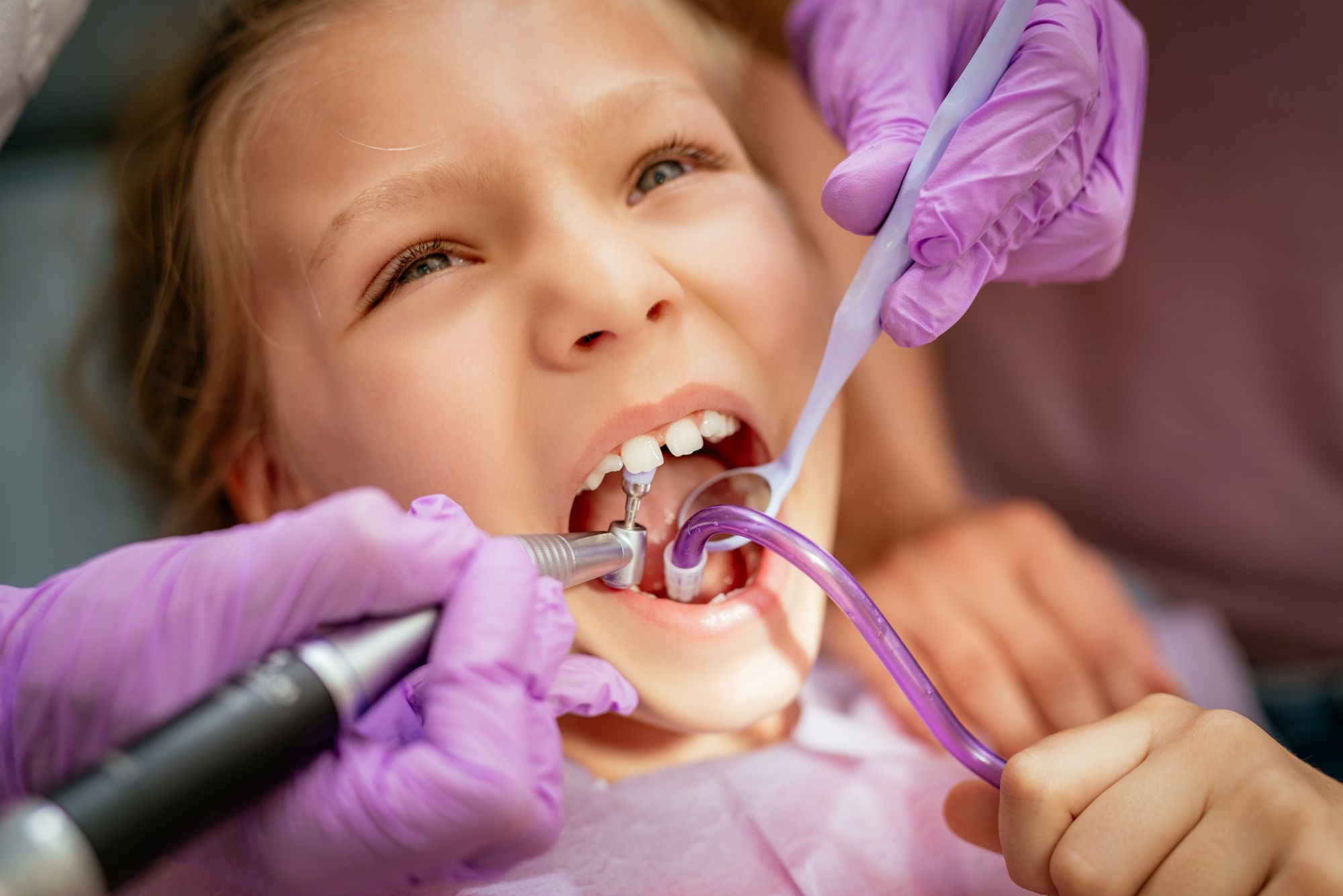Gum disease is a common oral health problem that affects millions of people worldwide. It is caused by the buildup of plaque and bacteria on the teeth and gums, which can lead to inflammation, swelling, and bleeding. If left untreated, gum disease can progress to a more severe stage called periodontitis, which can result in tooth loss and other health complications.
While professional dental care is the most effective way to treat gum disease, some people may wonder if it is possible to cure gum disease without a dentist. Although there are home remedies and over-the-counter products available, it is important to note that gum disease is not curable and can only be managed with the help of a dentist or periodontist. This is because gum disease can affect the bone and tissues that support the teeth, which requires professional intervention to prevent further damage.
Good oral care practices such as brushing and flossing regularly, using mouthwash, and visiting a dentist for regular checkups and cleanings can help prevent gum disease. Additionally, avoiding tobacco products and maintaining a healthy lifestyle can also reduce the risk of developing gum disease. In cases where gum disease has progressed to a more severe stage, nonsurgical treatments such as scaling and root planing or surgical treatments such as flap surgery may be necessary to manage the condition.
What is Gum Disease?
Gum disease is a common dental problem that affects many people. It is caused by the buildup of plaque, a sticky film of bacteria that forms on the teeth and gums. Plaque can harden into tartar, which can only be removed by a dentist or dental hygienist.
If left untreated, gum disease can lead to inflammation, gingivitis, and periodontitis. Inflammation is the body’s response to infection, and it can cause redness, swelling, and tenderness in the gums. Gingivitis is the earliest stage of gum disease, and it is characterized by inflammation of the gums. Periodontitis is a more advanced stage of gum disease, and it can lead to bone loss and tooth loss.
Gum disease is caused by bacteria that live in the mouth. These bacteria produce toxins that can damage the gums and teeth. The bacteria can also enter the bloodstream and cause other health problems, such as heart disease and stroke.
Some of the common symptoms of gum disease include:
- Red, swollen, or tender gums
- Bleeding gums when brushing or flossing
- Receding gums
- Loose teeth
- Persistent bad breath
- Changes in the way teeth fit together when biting or chewing
Preventing gum disease is important for maintaining good oral health. This can be achieved by practicing good oral hygiene, such as brushing twice a day, flossing daily, and using mouthwash. Regular dental checkups and cleanings can also help prevent gum disease and detect it early if it does occur.
Causes of Gum Disease
Gum disease, also called periodontal disease, is a common condition that affects the gums and bones supporting the teeth. It is caused by a variety of factors, including poor oral hygiene, smoking, diabetes, and certain medical conditions.
Plaque and Tartar
The primary cause of gum disease is plaque, a sticky film of bacteria that forms on the teeth and gums. If plaque is not removed regularly through brushing and flossing, it can harden into tartar, which can only be removed by a dentist or dental hygienist. Tartar buildup can lead to gum inflammation and infection, which can progress to more serious stages of gum disease.
Bacteria
Bacteria in the mouth can also contribute to gum disease. Certain types of bacteria produce toxins that irritate the gums and cause inflammation. This can lead to the breakdown of gum tissue and bone, which can ultimately result in tooth loss.
Smoking and Tobacco Use
Smoking and other forms of tobacco use are major risk factors for gum disease. Tobacco use can weaken the immune system and make it more difficult for the body to fight off infections, including those that affect the gums. Smoking also reduces blood flow to the gums, which can slow down the healing process.
Diabetes
People with diabetes are at increased risk for gum disease. High blood sugar levels can weaken the immune system and make it harder for the body to fight off infections. Diabetes can also reduce blood flow to the gums, which can slow down the healing process.
Oral Hygiene
Poor oral hygiene is a major risk factor for gum disease. If plaque is not removed regularly through brushing and flossing, it can harden into tartar, which can lead to gum inflammation and infection. Regular dental cleanings and checkups can help prevent gum disease and detect it early if it does occur.
Medical Conditions
Certain medical conditions, such as HIV/AIDS and cancer, can increase the risk of gum disease. Medications used to treat these conditions can also affect oral health. Additionally, hormonal changes during pregnancy and menopause can increase the risk of gum disease.
Overall, gum disease is a complex condition with multiple causes. While some risk factors, such as genetics, cannot be controlled, others, such as oral hygiene and smoking, can be modified to reduce the risk of gum disease.
Symptoms of Gum Disease
Gum disease, also known as periodontal disease, is a common dental problem that affects many people. It is caused by the buildup of plaque and bacteria on the teeth and gums, leading to inflammation and infection. If left untreated, gum disease can cause serious damage to the teeth and gums, and even lead to tooth loss.
Here are some common symptoms of gum disease:
- Bleeding gums: One of the most common signs of gum disease is bleeding gums. If you notice blood when you brush or floss your teeth, it could be a sign of gum disease. This is because the gums become inflamed and sensitive, making them more prone to bleeding.
- Swollen gums: Another common symptom of gum disease is swollen gums. If your gums appear red, puffy, or swollen, it could be a sign of gum disease. Swollen gums are caused by the buildup of bacteria and plaque, which irritate the gums and cause inflammation.
- Sensitive teeth: Gum disease can also cause tooth sensitivity. If your teeth are sensitive to hot or cold temperatures, or if you experience pain when you bite or chew, it could be a sign of gum disease. This is because the gums have receded, exposing the sensitive roots of the teeth.
- Bad breath: Gum disease can also cause bad breath, or halitosis. This is because the bacteria that cause gum disease produce a foul odor. If you have persistent bad breath, even after brushing and flossing, it could be a sign of gum disease.
- Pus: In some cases, gum disease can cause the formation of pus around the teeth and gums. Pus is a thick, yellowish fluid that is produced by the body in response to infection. If you notice pus around your teeth or gums, it could be a sign of advanced gum disease.
- Loose teeth: In severe cases, gum disease can cause the teeth to become loose or even fall out. This is because the infection has damaged the bone and tissues that support the teeth. If you notice that your teeth are becoming loose, it is important to seek treatment as soon as possible.
Overall, if you experience any of these symptoms, it is important to see a dentist as soon as possible. With proper treatment, gum disease can be cured or managed, and the teeth and gums can be restored to health.
Diagnosis of Gum Disease
Diagnosing gum disease typically involves a combination of factors, including dental checkups, medical history, and examination. Here are some of the key steps involved in the diagnosis of gum disease:
- Dental Checkups: Regular dental checkups are crucial for the early detection of gum disease. During these checkups, dentists will examine the teeth and gums, looking for signs of inflammation, bleeding, and other symptoms of gum disease.
- Medical History: Dentists will also ask about the patient’s medical history, including any medications they may be taking that could affect their oral health. Certain medical conditions, such as diabetes, can also increase the risk of gum disease.
- Examination: During the examination, dentists will use a probe to measure the depth of the pockets between the teeth and gums. Pockets that are deeper than 3 millimeters may indicate the presence of gum disease. Dentists may also take X-rays to check for bone loss caused by gum disease.
- Tartar Buildup: Tartar buildup is a common sign of gum disease. Tartar is a hard, yellowish substance that forms on the teeth when plaque is not removed. Dentists can remove tartar buildup using a process called scaling.
Overall, the diagnosis of gum disease is a complex process that requires careful examination and evaluation. With early detection and treatment, however, gum disease can often be cured or managed effectively, even without the need for a dentist.
Treatment for Gum Disease
Treating gum disease is important to prevent further damage to the teeth and gums. While it is always best to seek professional care from a dentist, there are some things that can be done at home to help treat gum disease.
Nonsurgical Treatments
Nonsurgical treatments for gum disease include dental prophylaxis, scaling and root planing, and antibiotic therapy. Dental prophylaxis is a routine dental cleaning that removes plaque and tartar from teeth surfaces. Scaling and root planing is a deep cleaning that removes plaque and tartar from below the gumline. Antibiotic therapy involves using antibiotics to kill the bacteria that cause gum disease.
Surgical Treatments
Surgical treatments for gum disease include pocket reduction surgery, bone grafts, soft tissue grafts, and flap surgery. Pocket reduction surgery involves removing the bacteria and tartar from the pockets that have formed between the teeth and gums. Bone grafts involve replacing the bone that has been destroyed by gum disease. Soft tissue grafts involve replacing the gum tissue that has been destroyed by gum disease. Flap surgery involves lifting the gum tissue to access the roots of the teeth and clean them.
Guided tissue regeneration is another surgical treatment for gum disease. This procedure involves using a special membrane to encourage the growth of new bone and gum tissue.
It is important to note that while these treatments can be effective, they are not a cure for gum disease. Ongoing maintenance and regular dental check-ups are necessary to prevent gum disease from returning.
Prevention of Gum Disease
Good oral hygiene is the key to preventing gum disease. Here are some tips that can help:
Brushing
Brushing your teeth twice a day is essential for maintaining good oral hygiene. Use a soft-bristled brush and fluoride toothpaste. Make sure to brush all surfaces of your teeth, including the front, back, and chewing surfaces. Brush your tongue as well to remove bacteria and freshen your breath.
Flossing
Flossing at least once a day is just as important as brushing. Use a piece of floss about 18 inches long and wrap it around your fingers. Gently insert the floss between your teeth and move it up and down. Be sure to floss both sides of each tooth and along the gum line.
Dental Cleanings
Regular dental cleanings are essential for preventing gum disease. Dentists and dental hygienists can remove plaque and tartar buildup that you can’t remove with brushing and flossing alone. They can also identify any early signs of gum disease and provide treatment before it becomes more serious.
Oral Hygiene
In addition to brushing and flossing, there are other things you can do to maintain good oral hygiene. Use an antiseptic mouthwash to kill bacteria and freshen your breath. Chew sugarless gum to stimulate saliva production, which helps neutralize acid and prevent tooth decay. Drink plenty of water to keep your mouth hydrated and wash away food particles.
Tobacco Use
Smoking and using other tobacco products increase your risk of gum disease. Tobacco use weakens your immune system and makes it harder for your body to fight off infections. It also reduces blood flow to your gums, which makes it harder for them to heal.
Green Tea
Green tea has been shown to have antibacterial properties that can help prevent gum disease. Drinking green tea regularly may reduce inflammation and improve your overall oral health. It also contains antioxidants that can help protect your teeth and gums from damage.
Healthy Mouth
Maintaining a healthy mouth is essential for preventing gum disease. Eat a balanced diet that is rich in fruits, vegetables, and whole grains. Avoid sugary and starchy foods that can contribute to tooth decay. Limit your intake of alcohol and sugary drinks. And, of course, practice good oral hygiene every day.
By following these tips, you can significantly reduce your risk of developing gum disease. If you do notice any signs of gum disease, such as bleeding gums or bad breath, be sure to see your dentist right away. Early treatment is essential for preventing the disease from progressing and causing more serious problems.
Can You Cure Gum Disease Without a Dentist?
Gum disease is a common oral health problem that affects many people worldwide. While professional dental treatment is the most effective way to manage the condition, some home remedies may also help alleviate symptoms and prevent further damage. This section will explore whether it is possible to cure gum disease without a dentist and discuss some home remedies that may be helpful.
Saltwater rinses are a popular home remedy for gum disease. Saltwater can help reduce inflammation and kill harmful bacteria in the mouth. To use this remedy, mix a teaspoon of salt in a glass of warm water and swish the solution around in your mouth for 30 seconds before spitting it out. Repeat this process a few times a day to help manage gum disease symptoms.
Mouthwash is another home remedy that may help treat gum disease. Some mouthwashes contain antibacterial ingredients that can help kill harmful bacteria in the mouth and reduce inflammation. However, it is important to choose a mouthwash that is specifically designed for gum disease and to use it according to the instructions on the label.
While home remedies may be helpful in managing gum disease symptoms, they cannot cure the condition. It is important to seek professional dental treatment if you suspect that you have gum disease. A dentist can diagnose the condition and recommend the most appropriate treatment plan, which may involve deep cleaning, antibiotics, or surgery.
In conclusion, while home remedies such as saltwater rinses and mouthwash may help manage gum disease symptoms, they cannot cure the condition. Seeking professional dental treatment is the most effective way to manage gum disease and prevent further damage to the teeth and gums.
When to See a Dentist or Periodontist
Gum disease is a serious condition that can lead to tooth loss and other complications if left untreated. While there are some things you can do at home to help prevent gum disease, it’s important to see a dentist or periodontist if you notice any symptoms or risk factors.
Dental Visits
Regular dental visits are an important part of preventing and treating gum disease. During a routine exam, your dentist or dental hygienist will check your gums for signs of inflammation and measure the pockets around your teeth to see if they are deepening. They will also remove any plaque or tartar that has built up on your teeth, which can help prevent gum disease from developing.
Symptoms
If you notice any signs of gum disease, such as red, swollen, or bleeding gums, it’s important to see a dentist or periodontist right away. Other symptoms of gum disease may include bad breath, loose teeth, and a receding gum line.
Complications
If left untreated, gum disease can lead to serious complications, such as tooth loss, bone loss, and even an increased risk of heart disease and stroke. Seeing a dentist or periodontist can help prevent these complications and ensure that your gums stay healthy.
Risk Factors
Certain risk factors can increase your chances of developing gum disease, such as smoking, diabetes, and a family history of gum disease. If you have any of these risk factors, it’s especially important to see a dentist or periodontist regularly to monitor your gum health.
Oral Care
Maintaining good oral hygiene is an important part of preventing and treating gum disease. This includes brushing your teeth twice a day, flossing daily, and using an antiseptic mouthwash. Your dentist or periodontist may also recommend other oral care products, such as interdental brushes or water flossers.
Health Problems
Some health problems, such as diabetes and heart disease, can increase your risk of developing gum disease. If you have any underlying health conditions, it’s important to see a dentist or periodontist regularly to monitor your gum health and prevent complications.
In summary, seeing a dentist or periodontist is an important part of preventing and treating gum disease. Regular dental visits, good oral hygiene, and monitoring your risk factors can help keep your gums healthy and prevent serious complications.
Conclusion
While it is possible to cure gum disease without a dentist, it is important to note that the success of self-treatment varies depending on the severity of the disease. In the early stages of gum disease, regular brushing, flossing, and using a mouth rinse can be effective in preventing further damage. However, if the disease has progressed to a more advanced stage, it may be necessary to seek professional treatment from a dentist or periodontist.
It is important to note that self-treatment should not be seen as a replacement for professional dental care. Regular dental check-ups and cleanings are essential in preventing gum disease and maintaining good oral health. Additionally, if you are experiencing pain, bleeding, or other symptoms of gum disease, it is important to seek professional treatment immediately.
Overall, while self-treatment can be effective in preventing and treating gum disease in its early stages, it is important to seek professional dental care for more advanced cases. By maintaining good oral hygiene habits and seeking professional care when necessary, individuals can prevent and treat gum disease and maintain good oral health.














